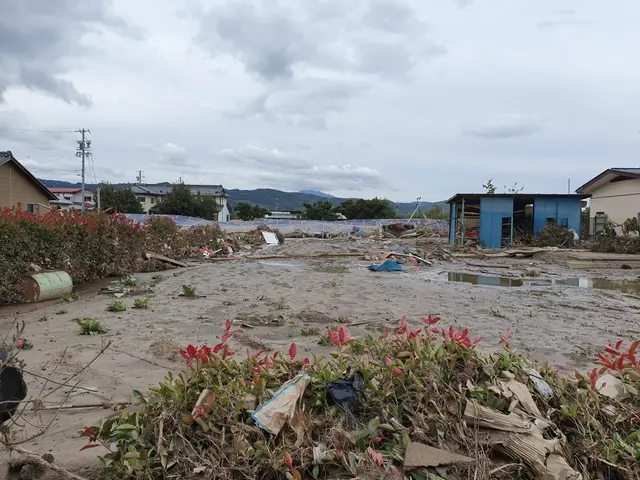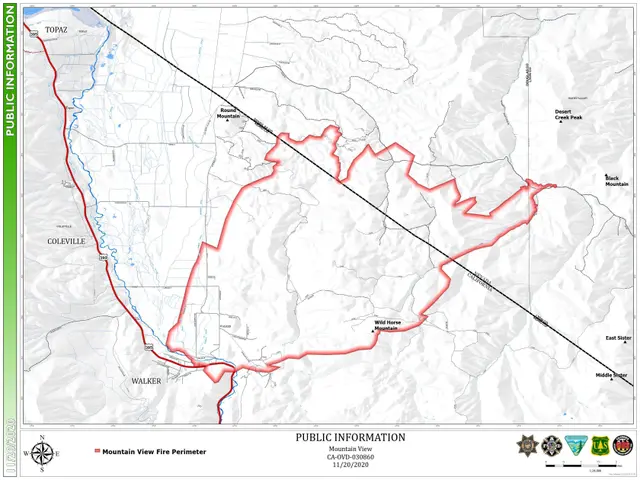High Seas Treaty Gains Speed: Key Highlights from the UN Ocean Conference, Nice, France
Deep Sea and Plastic Waste: Summation from UN Ocean Conference - Proposing an Extension: The Agreement's Validity Period to be Increased by Another Three Years
The five-day UN Ocean Conference wrapped up in Nice, France, with environmentalists urging swift action on the promises made. Amidst geopolitical challenges, the event contributed significantly to marine conservation, but OceanCare stresses that the outcome falls short of the global community's marine conservation objectives by 2030.
Outlook on High Seas Protection
The high seas account for approximately 60 to 70 percent of the oceans, with minimal international regulations in place. Two years ago, the High Seas Treaty, adopted by the United Nations, set out to change this. The treaty provides a framework for establishing protected areas in the high seas, with a goal of encouraging ratification by at least 60 states.
To the relief of environmental organizations, more than a dozen states ratified the treaty at the start of the conference, bringing the total number of countries required close. According to French statements, this target should be reached as early as September. OceanCare celebrated this as an "encouraging progress," while Greenpeace urged Germany to expedite its ratification.
Battle Against Plastic Pollution
Substantial action against plastic pollution is anticipated in August during the international meeting in Geneva, where countries will negotiate a treaty to limit ocean pollution. Last year, talks in South Korea ended without an agreement.
At the Nice conference, 95 countries united to advocate for limiting the production of primary plastics, as well as reporting on the production, import, and export of these materials. They also encouraged a commitment to phase out the most damaging plastic products and chemicals in the treaty.
"This is a decent first step and the bare minimum required to effectively combat plastic pollution," commented Florian Titze from WWF Germany. Countries must be willing to reach an agreement by majority vote if individual countries continue to stall progress in Geneva.
Deep-Sea Mining: Global Stance
Although there is currently no industrial-scale mining in the deep sea, plans to extract "polymetallic nodules" pose a significant threat to many countries. The potential risks to deep-sea ecosystems have been highlighted by studies. Germany and 36 other countries proposed a pause in deep-sea mining, avoiding support for any such projects in the meantime.
The USA, under President Donald Trump, has been considering deep-sea mining, even in international waters. In Nice, 24 countries, including Germany, vehemently opposed such considerations. The deep-sea resources outside national waters are considered common heritage under international law and should be managed collectively by the International Seabed Authority (ISA). As the ISA has around 170 member states, but not the USA, the organization plans to discuss a globally agreed framework for deep-sea mining again this summer.
Additional Advances in Nice
Progress was made on numerous topics during the conference. Germany aims to collaborate with France to locate unexploded ordnance in the Baltic and North Seas; a group of states intends to intensify the fight against noise pollution in the ocean, and UNESCO intends to strengthen marine education.
However, Fabienne McLellan, CEO of OceanCare, offers a warning: UN Ocean Conferences serve as assessments to determine whether the international community can achieve the self-imposed goals for ocean protection by 2030. "This includes reducing marine pollution and transitioning to sustainable fisheries practices. However, we are still far from meeting these objectives."
The next UN Ocean Conference is scheduled for 2028, with South Korea and Chile serving as hosts. This year, Costa Rica shared the role as co-host. There have been two UN Ocean Conferences previously: in 2017 in New York and in 2022 in Lisbon.
Insight: As of the conference, 49 countries have ratified the High Seas Treaty, with 18 new countries ratifying it during the event. This leaves the treaty just 11 ratifications short of entering into force.
Reference(s):
- "About the High Seas Treaty - UNEA." United Nations Environment Assembly, un.org/unea/highseas/.
- "High Seas Protection: The EU’s Role." IlWhy, uninthemedia.eu/high-seas-protection-the-eus-role/.
- "[Opinion] The abyssal trajectory of deep-sea mining and ocean conservation | Nature Communications." Nature.com, www.nature.com/articles/s41467-019-13724-8.
- "18 countries ratify UN High Seas Treaty at Nice." Deutsche Welle, www.dw.com/en/18-countries-ratify-un-high-seas-treaty-at-nice/a-58827838.
- The High Seas Treaty has gained momentum with more than a dozen countries ratifying it at the UN Ocean Conference in Nice, bringing the total number required to 60 for its entry into force.
- The pending ratification of the High Seas Treaty by about 11 countries will provide a framework for establishing protected areas in the high seas, contributing significantly to marine conservation efforts.
- The High Seas Treaty, a key tool for environmental protection, aims to ensure the sustainability of marine resources and protect ecosystems in the high seas, addressing the gap in international regulations currently in place.








